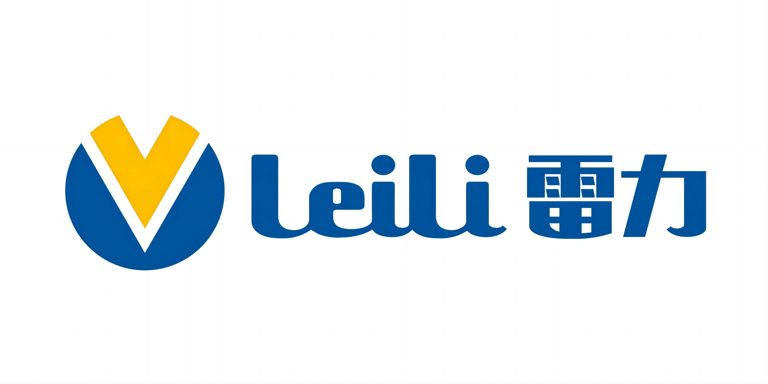IATF 16949 Enterprise: Quality Standards in Auto Industry
Discover the benefits of becoming an IATF 16949 enterprise in the automotive industry. Learn how certification enhances quality management and operational efficiency.
LEILI
Hower Yang
7/11/20254 min read


What is an IATF 16949 enterprise
In the automotive industry, quality is paramount. Ensuring high standards is crucial for safety and performance. This is where IATF 16949 comes into play.
IATF 16949 is a global standard for quality management systems. It is specifically designed for the automotive sector. This standard helps companies maintain consistent quality.
An IATF 16949 enterprise is a company that meets this standard. It demonstrates a commitment to quality and continuous improvement. Such enterprises are highly regarded in the industry.
Achieving IATF 16949 certification involves a rigorous process. It requires dedication and adherence to strict guidelines. However, the benefits are substantial.
Companies like LEILI AUTO PARTS strive for this certification. It enhances their reputation and operational efficiency. Understanding IATF 16949 is essential for success in the automotive world.
Understanding IATF 16949: The Automotive Quality Management Standard
The IATF 16949 standard is pivotal in the automotive industry. It sets a framework for establishing a quality management system. The goal is to ensure high product quality and reliability.
Created by the International Automotive Task Force (IATF), this standard integrates with ISO 9001. It emphasizes defect prevention, continuous improvement, and waste reduction. Companies adopting this standard aim for excellence.
A key aspect of IATF 16949 is its focus on risk management. It requires companies to identify and mitigate potential issues. This proactive approach is crucial for enhancing operational processes.
The benefits of compliance include improved customer satisfaction and product quality. Companies adhering to IATF 16949 can:
Achieve consistency in manufacturing processes
Increase efficiency and reduce costs
Meet industry-specific requirements and standards
By adopting IATF 16949, enterprises align with global best practices. It positions them as preferred suppliers in the competitive automotive sector, fostering trust and long-term relationships with clients.
What Defines an IATF 16949 Enterprise?
An IATF 16949 enterprise is distinguished by its robust quality management system. This system aligns with the stringent requirements of the IATF 16949 standard. The company is committed to providing high-quality products and services in the automotive industry.
To qualify as an IATF 16949 enterprise, a company undergoes a rigorous certification process. This involves comprehensive audits conducted by recognized certification bodies. These audits ensure that the company's processes meet the global standard's criteria.
Key characteristics of an IATF 16949 enterprise include:
Adherence to a documented quality policy
Ongoing improvements in processes and products
Commitment to reducing defects and variations
Such enterprises demonstrate a strong focus on customer satisfaction. They prioritize compliance with both regulatory and customer-specific requirements. This dedication enhances their reputation in the market and boosts their operational efficiency.
The Importance of IATF 16949 Certification in the Automotive Industry
IATF 16949 certification is pivotal for suppliers in the automotive sector. It signals a commitment to maintaining high-quality standards. Suppliers with this certification are viewed favorably by automotive manufacturers and OEMs.
The certification enhances a company's competitive edge. It aligns the enterprise with industry best practices and ensures that it meets customer-specific requirements. This alignment often results in better business opportunities and greater market share.
Benefits of certification include:
Improved product quality
Increased customer satisfaction
Access to global markets
The certification process involves a thorough audit to ensure compliance. While resource-intensive, the long-term gains often outweigh the costs. Companies with the certification frequently report better operational efficiency and reduced production defects. This enhances customer trust and loyalty significantly.
Key Requirements of the IATF 16949 Quality Management System
The IATF 16949 standard outlines key requirements for a robust quality management system. These requirements help organizations maintain a consistent focus on quality improvement. They are essential for ensuring customer satisfaction and product reliability in the automotive industry.
Organizations must establish a documented quality policy. This policy serves as a guiding principle for all operational activities. It must also align with the company’s strategic direction and objectives.
Essential elements of the quality management system include:
Risk management processes
Continuous improvement plans
Process efficiency monitoring
Non-conformity management
Additionally, the standard emphasizes employee engagement and training. Companies are required to ensure their workforce is competent and well-informed. This emphasis on training fosters a culture of excellence across the organization.
IATF 16949 also mandates regular internal audits. These audits help identify areas for improvement, ensuring processes are up-to-date and effective. A systematic approach to change management is also necessary, ensuring any changes are carefully controlled and implemented.
Steps to Achieve IATF 16949 Certification
Achieving IATF 16949 certification involves several structured steps. These steps ensure that an organization fully meets the stringent requirements of the standard. It is essential for companies to prepare meticulously before certification.
First, organizations should conduct a gap analysis. This analysis helps identify areas where current practices deviate from IATF 16949 requirements. It provides a clear roadmap for necessary improvements.
After addressing gaps, companies must implement the needed changes. Key activities during this stage include:
Developing new quality policies
Enhancing process documentation
Training staff in quality management
Lastly, a third-party audit is crucial for certification. During the audit, an accredited body examines compliance with IATF 16949 requirements. Successful audits lead to certification, which needs regular maintenance through ongoing audits. This ensures sustained adherence to standards and continuous improvement.
Benefits of Becoming an IATF 16949 Enterprise
Becoming an IATF 16949 enterprise offers numerous advantages. It bolsters a company's global reputation by demonstrating commitment to high-quality standards. This commitment can set a company apart in a competitive market.
The certification also brings financial benefits. By reducing waste and defects, companies can lower operational costs. This efficiency translates into higher profitability and better resource utilization.
Moreover, customer satisfaction significantly improves. The focus on quality meets customer expectations and builds trust. Benefits of IATF 16949 certification include:
Improved product quality
Enhanced market reputation
Increased customer loyalty
Ultimately, this certification paves the way for sustainable growth and success. It ensures companies remain competitive in the ever-evolving automotive industry.
LEILI AUTO PARTS: A Case Example of IATF 16949 Implementation
LEILI AUTO PARTS exemplifies successful IATF 16949 implementation. They achieved certification, highlighting their commitment to quality. This achievement has not only elevated their market status but also improved their operational efficiency.
The certification process at LEILI AUTO PARTS involved comprehensive audits and teamwork. As a result, they enhanced their quality management system, aligning with industry best practices. Their commitment serves as a benchmark for other enterprises aiming for similar success.
Conclusion: The Future of Quality in Automotive Manufacturing
The future of automotive manufacturing hinges on quality and efficiency. IATF 16949 certification plays a crucial role in driving these aspects forward. As the industry evolves, the demand for higher standards will continue to grow.
Manufacturers that adopt these standards will lead the way in innovation and reliability. Embracing IATF 16949 ensures organizations meet global demands, securing their place in the competitive automotive sector.
